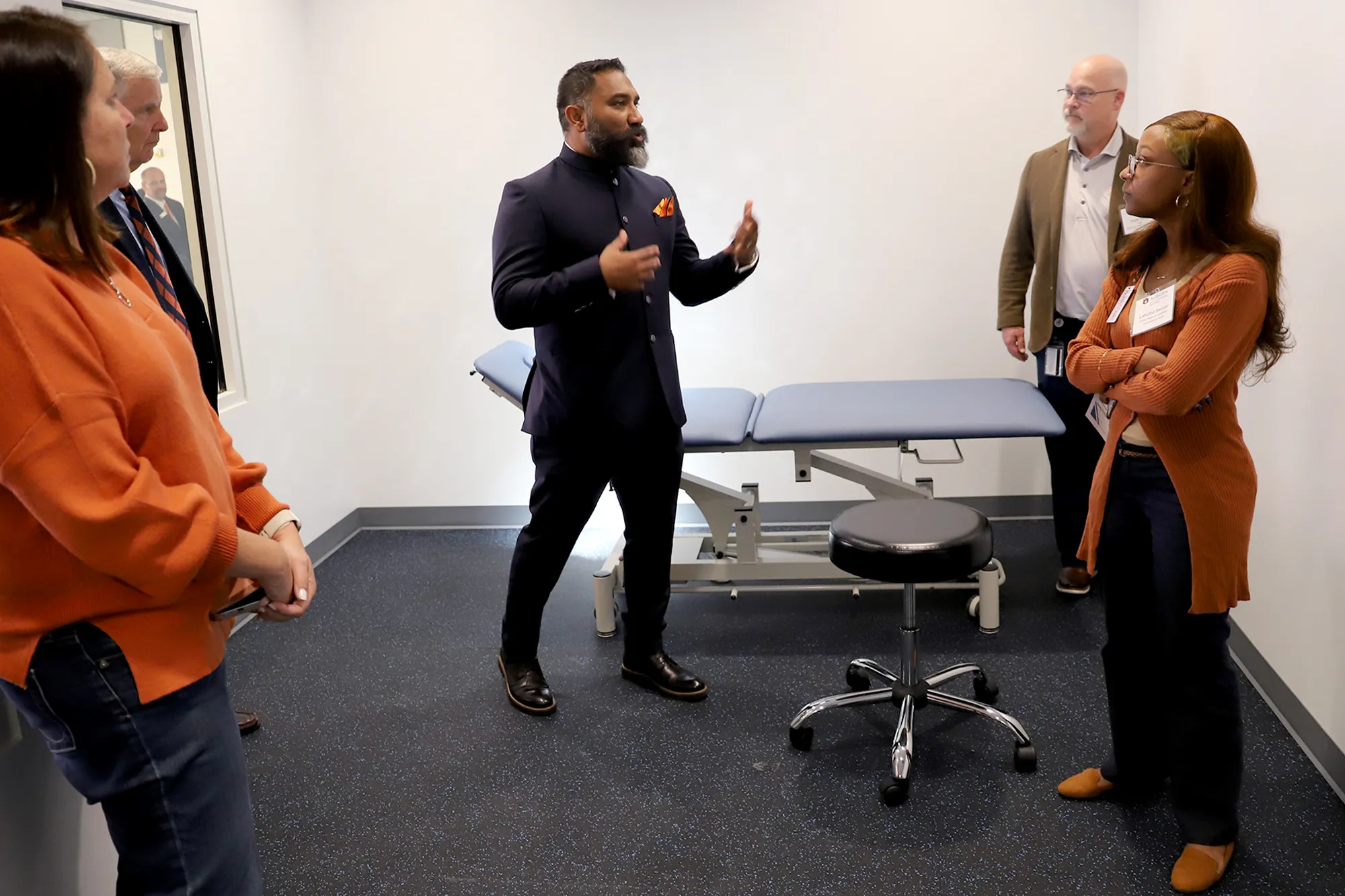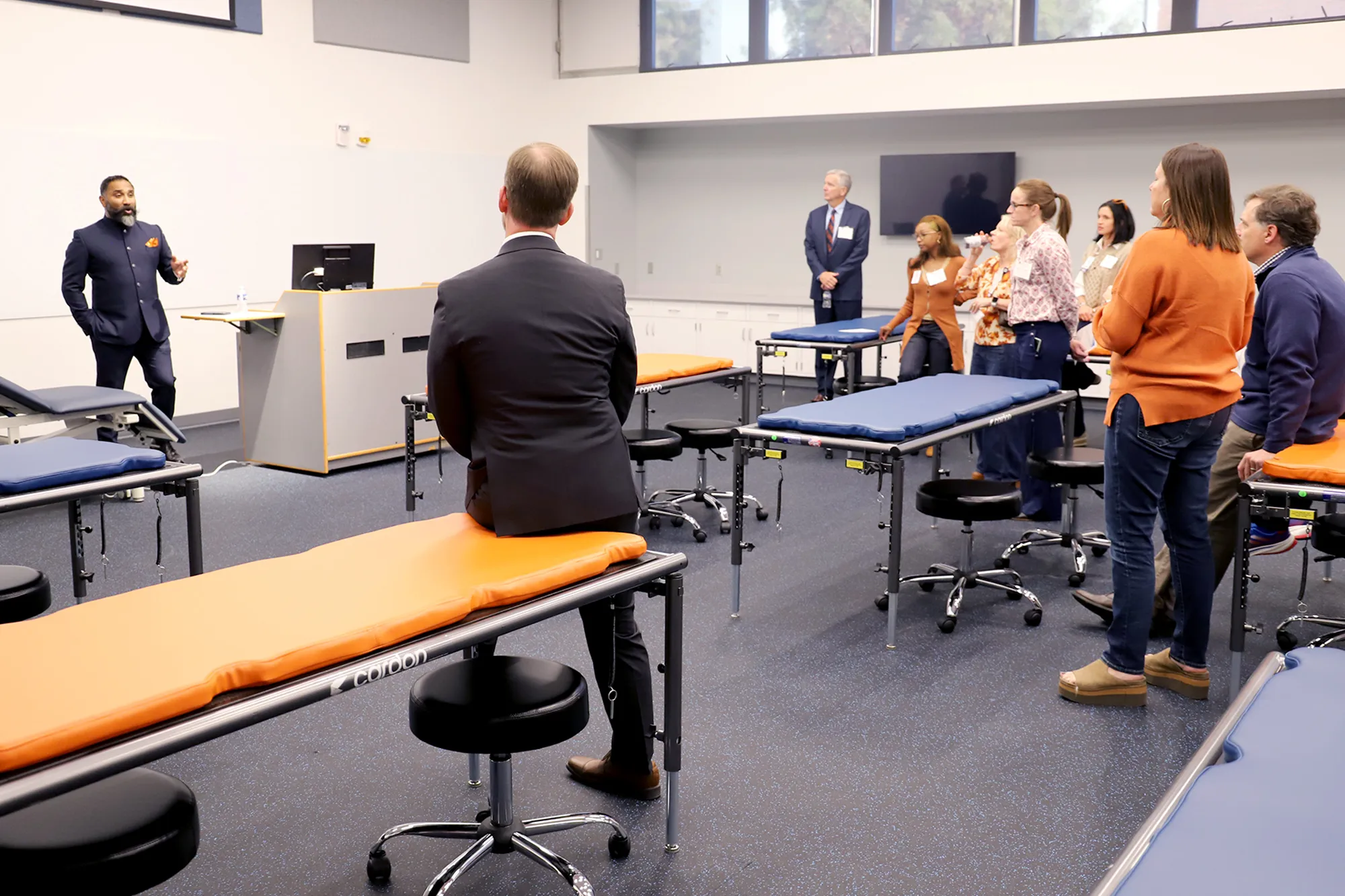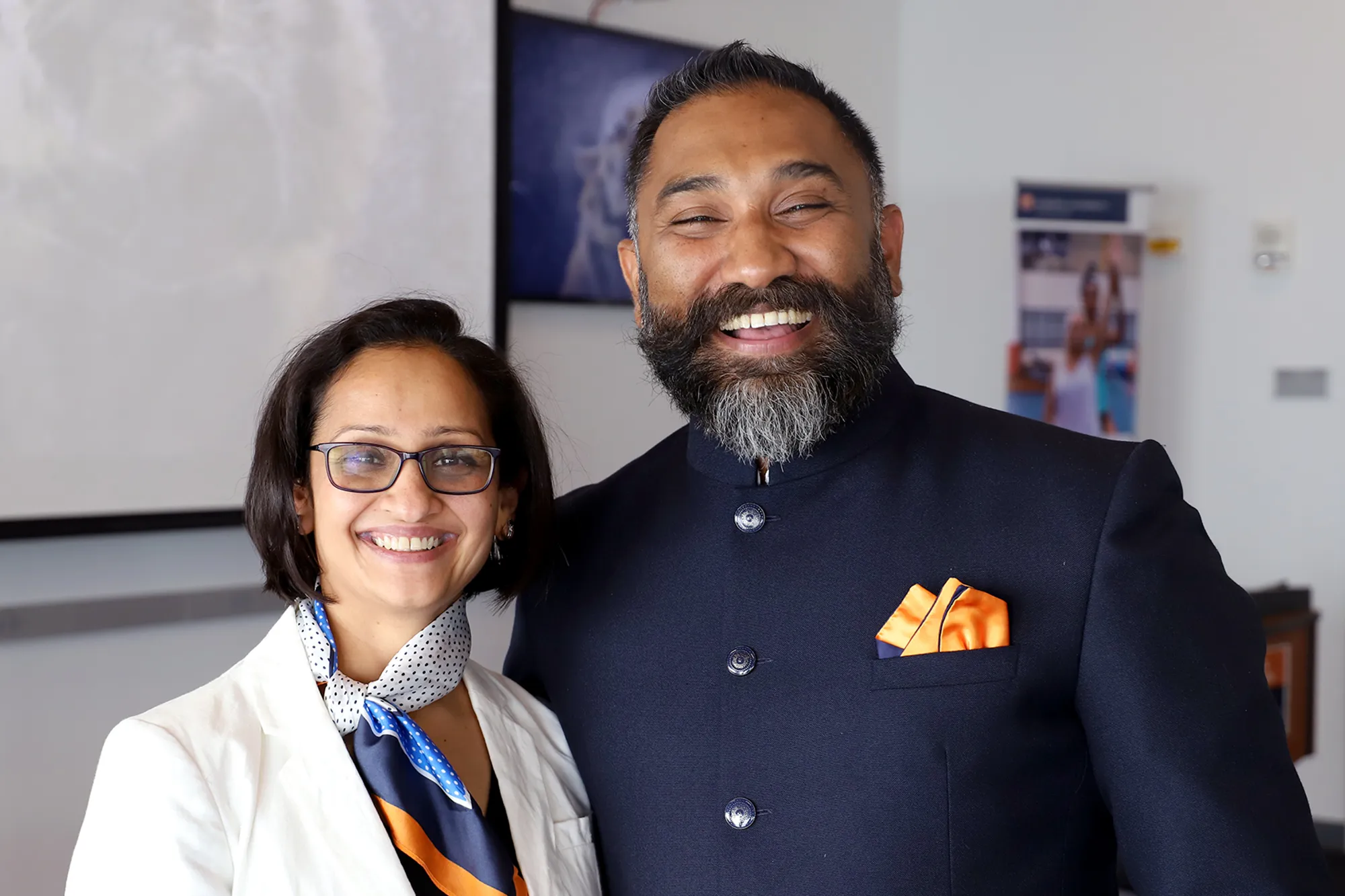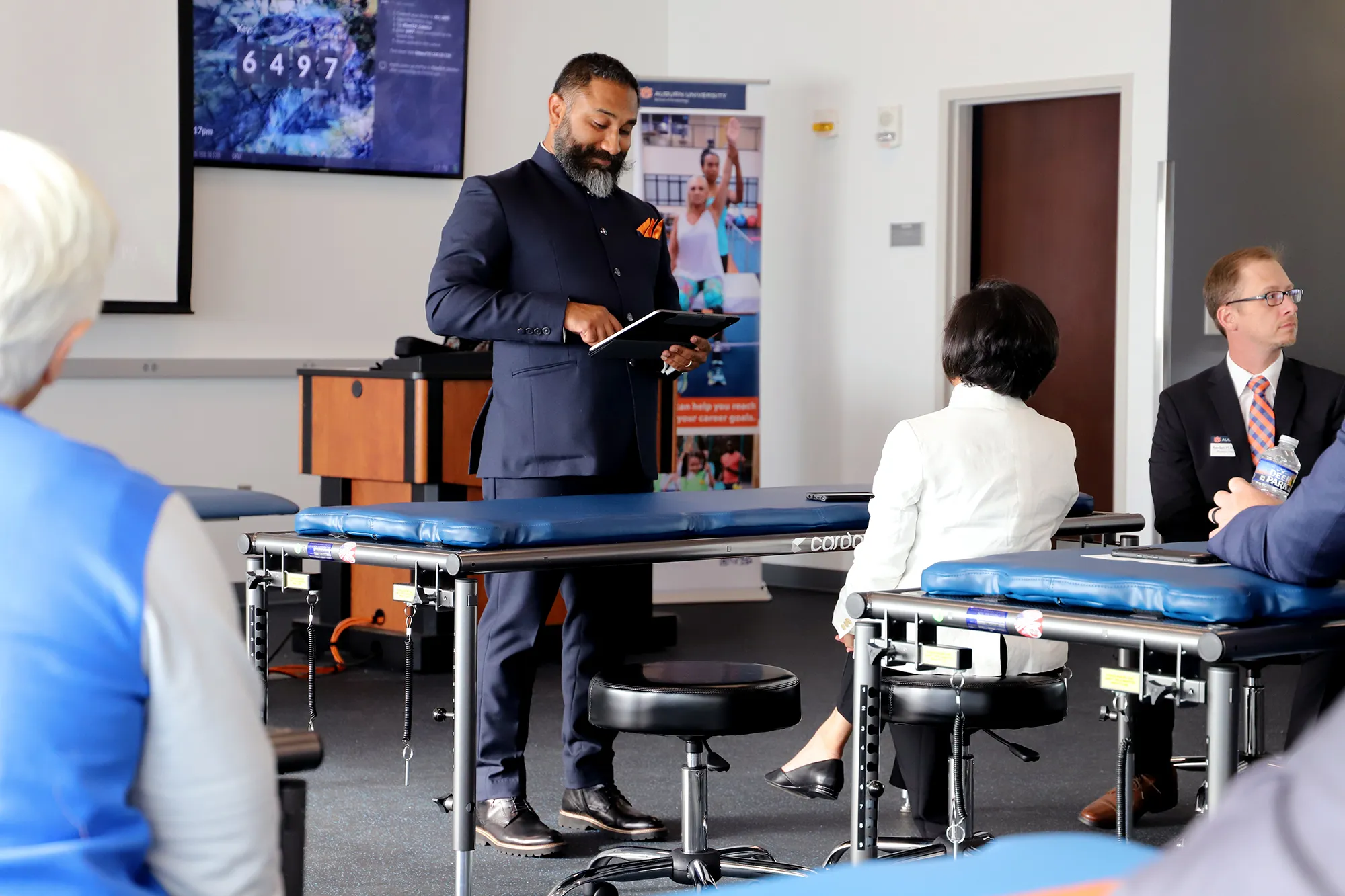Faculty, technology highlight new physical therapy program
When the first cohort of physical therapy students arrives at Auburn University this summer, they will be greeted by two hallmarks of the program – top-notch faculty and educational technology. The faculty who will be leading future physical therapists through their studies boast more than 150 years collectively of physical therapy experience.
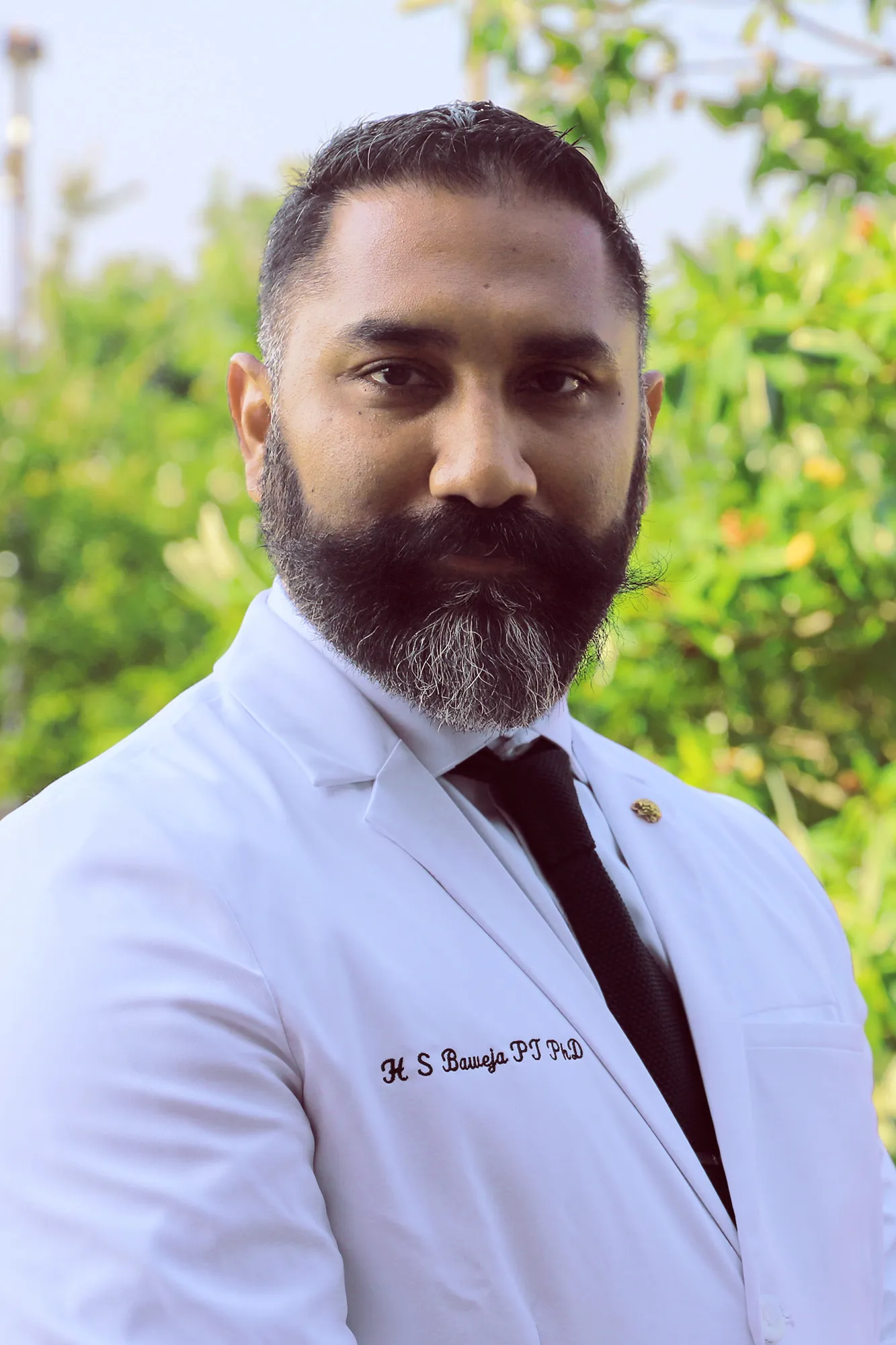
“Currently, the state of Alabama graduates 162 physical therapists from its five programs,” he said. “Once Auburn’s program is in full swing, the state will graduate 200 per year. We are looking forward to adding licensed physical therapists to support our Alabama residents, our military and local communities, while also creating a workforce of diverse physical therapists. We are eager to work with the existing DPT programs in the state to advance the field of physical therapy.”
Two of the newest hires to Auburn’s physical therapy program, Dr. Shana Carter and Dr. Ryan Babl, bring their clinical and medical education expertise to augment the quality of instruction and scholarship.
“We want to cultivate a community that is dedicated to enhancing the practice of physical therapy through innovations in education, research, outreach and advocacy,” he said. “We can do this by preparing clinical physical therapists who are equipped with the knowledge, skills and values needed to provide exceptional patient-centered care and contribute to the advancement of the physical therapy profession.”
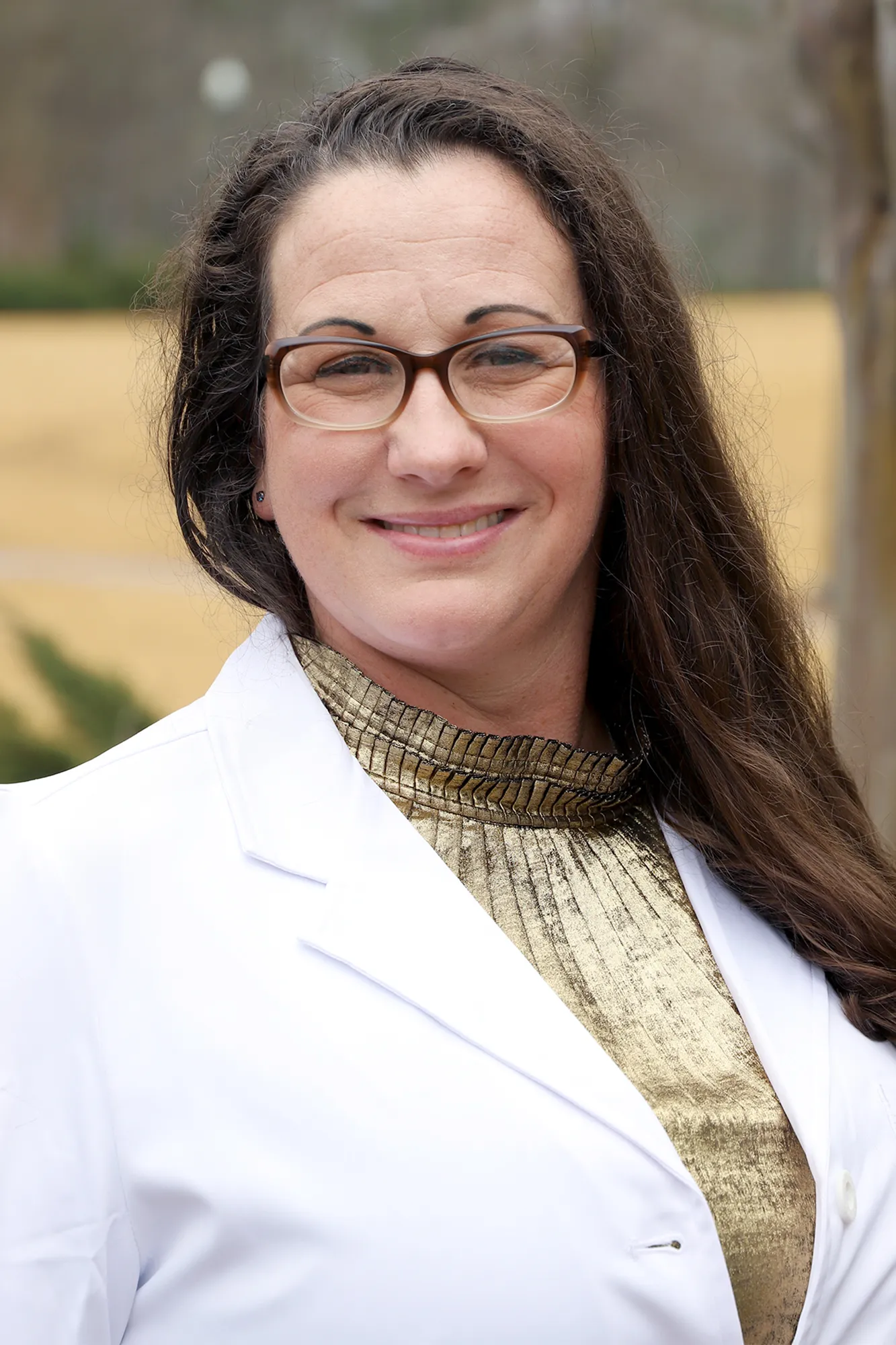
Shana Carter
Shana Carter, an assistant clinical professor in the physical therapy program, has an extensive background in rural health care, acute care, orthopedics and traveling physical therapy. Carter is a board-certified orthopedics clinical specialist (adding to the 131 reported in the state of Alabama as of 2024), a certified strength conditioning specialist, is certified in dry-needling, and is currently working toward her pelvic health specialization (which will add to the three reported pelvic health specialists in 2024 the state of Alabama). She has a doctorate in Online Curriculum and Instruction. Her research focused on Introversion versus Extroversion in DPT Student Burnout Prevalence. Her work has added to the current body of knowledge on the factors that affect burnout in DPT students and what factors may decrease the frequency and severity of student burnout. She actively utilizes her research on this topic to implement learner-centered active, engaging learning techniques as well as emphasizing the importance of maintaining healthy hobbies and supportive relationships during degree completion to decrease burnout risk. During her time working as a traveling provider, she focused on proving health care services to very rural and underserved communities across the United States where a physical therapist tends to be the initial point of medical contact. She was also a private practice owner with both brick and motor clinics as well as a cash-based clinic providing mobile health services to her community in the Florida panhandle.
“After serving in rural health areas for the previous eight years, I am fortunate to have a unique perspective in regard to treating those who reside in rural areas,” Carter said. “One unique challenge when providing care for individuals living in rural areas is the often lack of basic equipment or supplies to provide treatment with.”
However, Carter said the lack of equipment and supplies doesn’t limit the ability to provide care. She said patients can use items found around the house to complete treatment activities, such as using a gallon jug of water to complete transfer training and improve strength.
“I truly enjoy working with patients in rural settings to understand how they can leverage common household items to improve their health and wellbeing,” she said. “I also enjoy working with patients to apply for grants, scholarships or stipends to allow them to modify their home to be more accessible in rural environments.”
It’s this dedication to working with rural populations that Carter will share with students in Auburn’s physical therapy program.
“One of my greatest passions as a clinician is serving individuals and advocating for the services they need, especially when they have very limited resources or reside in very rural, underserved areas,” she said. “I hope to bring this passion and dedication for serving rural communities and those in need to the Doctor of Physical Therapy program.”
As a traveling clinician who served across the United States for the past eight years, Carter is looking forward to making Auburn her home and welcoming the first cohort of DPT students as they join the Auburn Family.
“The field of physical therapy is a truly amazing career choice as this field offers clinicians the ability to work in a large variety of settings, specialties, and countries, and with a wide variety of populations.”
Carter had the experience of working in every specialty setting that a physical therapist can serve in during her years as a traveling clinician. These include orthopedics, geriatrics, veteran health, acute-care, pediatrics and women’s health.
“This varied exposure to clinical settings, patient populations and business management prepared me to present students with an accurate representation of the field of physical therapy,” she said. “I also had the opportunity to own two small private practices and a cash-based mobile clinic which has equipped me with the skills to mentor students in opening their own clinic, if that is a path that interests them.”
When she’s not serving as a faculty member, Carter can be found at her home in the panhandle of Florida, where her husband serves with the Army Special Forces. She and her husband are involved in large breed dog rescue and currently have five rescue dogs that they consider family.
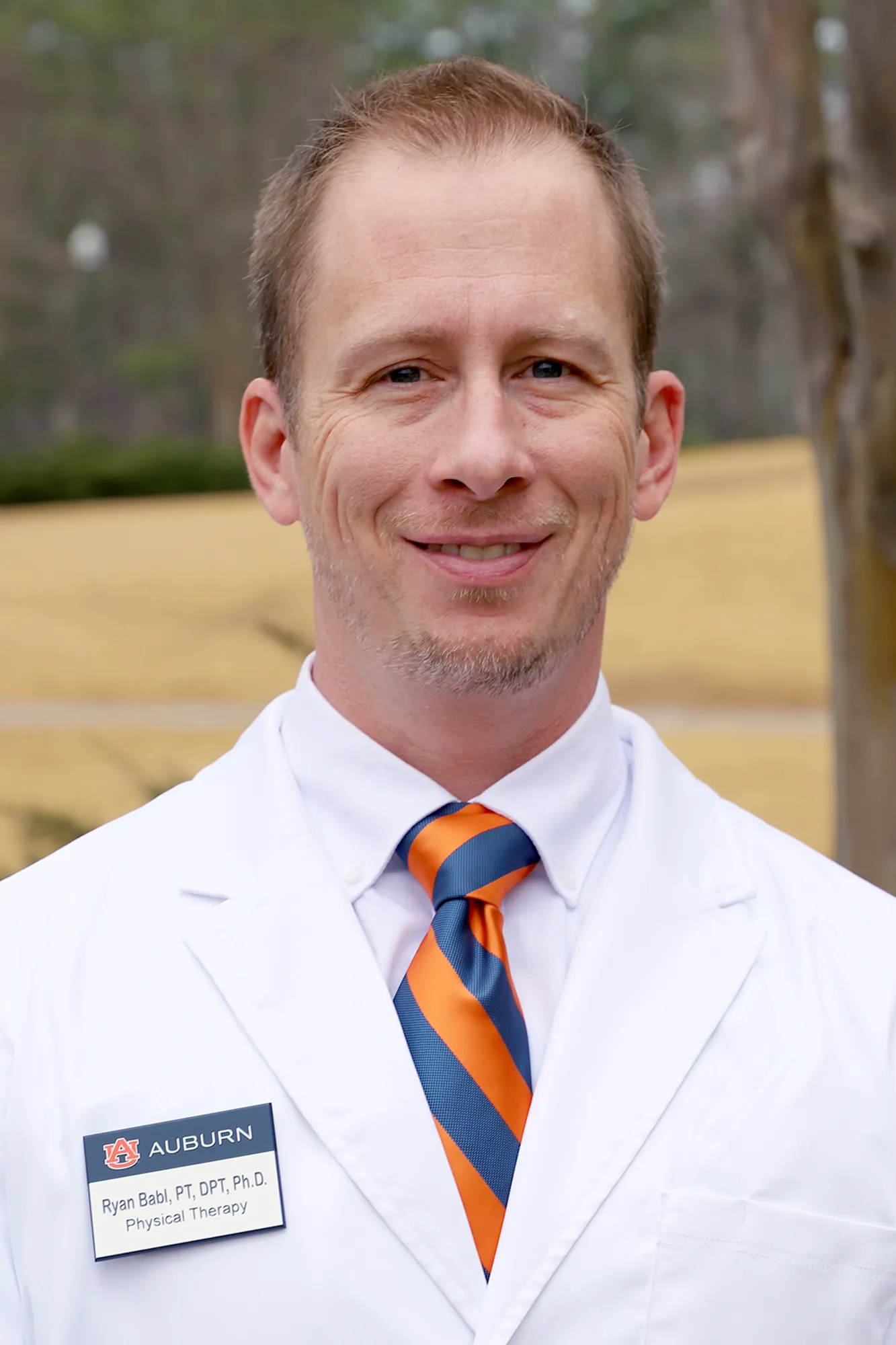
Ryan Babl
Ryan Babl, an assistant professor of the program, comes to Auburn from the University of Mississippi Medical Center in Jackson, Mississippi, where he spent seven years as a physical therapy educator. In that role, he worked inter-professionally with colleagues from various health care professions in both research and educational program development. He also has over 10 years of clinical experience as an outpatient physical therapist. He is a board certified Orthopedic clinical specialist (one of 131 in the state of Alabama), a certified aquatic PT, and a certified strength and conditioning specialist as well.
“I am committed to enhancing the learning experience for our students,” Babl said. “My passion lies in student teaching, active engagement, mentorship and promoting overall wellbeing, all of which I believe are crucial in shaping the next generation of compassionate and skilled physical therapists.”
He said the opportunity to join Auburn’s program from its inception is both unique and rewarding.
“Being part of establishing a new program’s culture is both an exciting and humbling experience,” he said. “I am eager to contribute to building a strong foundation that will set us on the path to becoming a gold-standard physical therapist education program.”
“Together, we collaborated on initiatives aimed at enhancing both clinical patient care and health care student education,” he said. “My experience as a physical therapist clinician-turned-educator has helped prepare me for the role of a founding faculty member in the DPT program. I’ve had the privilege of working closely with both patients and students, witnessing firsthand the journey toward achieving their goals. This dual perspective — understanding both health care delivery and education — has deepened my ability to be an effective educator and clinician.”
Baweja said Babl’s work has a strong alignment with the mission and vision of the School of Kinesiology and the program to set a gold standard in physical therapy education while training physical therapists to serve rural Alabama.
“Dr. Babl’s research is focused on reducing barriers in physical therapy and health care-related carrier choices and increasing representation in health care,” Baweja said. “He brings rich clinical experience in orthopedics and sports injuries as well as the scholarship of teaching and learning to physical therapy education. Dr. Babl is acutely aware of and passionate about reducing the barriers to entry and retention in physical therapy schools and the profession.”
Babl, a Nebraska Husker-turned-Auburn Tiger, is looking forward to bringing his expertise to the Plains as he plays a pivotal role in educating the next generation of physical therapists.
“My experience collaborating with educators for various health care professions has highlighted the critical importance of interprofessional communication and coordination. These skills are essential for improving health care experiences, enhancing outcomes and reducing costs. I’m excited to bring these experiences to our students, enriching their educational journey and helping them develop into well-rounded, compassionate physical therapists,” he said.
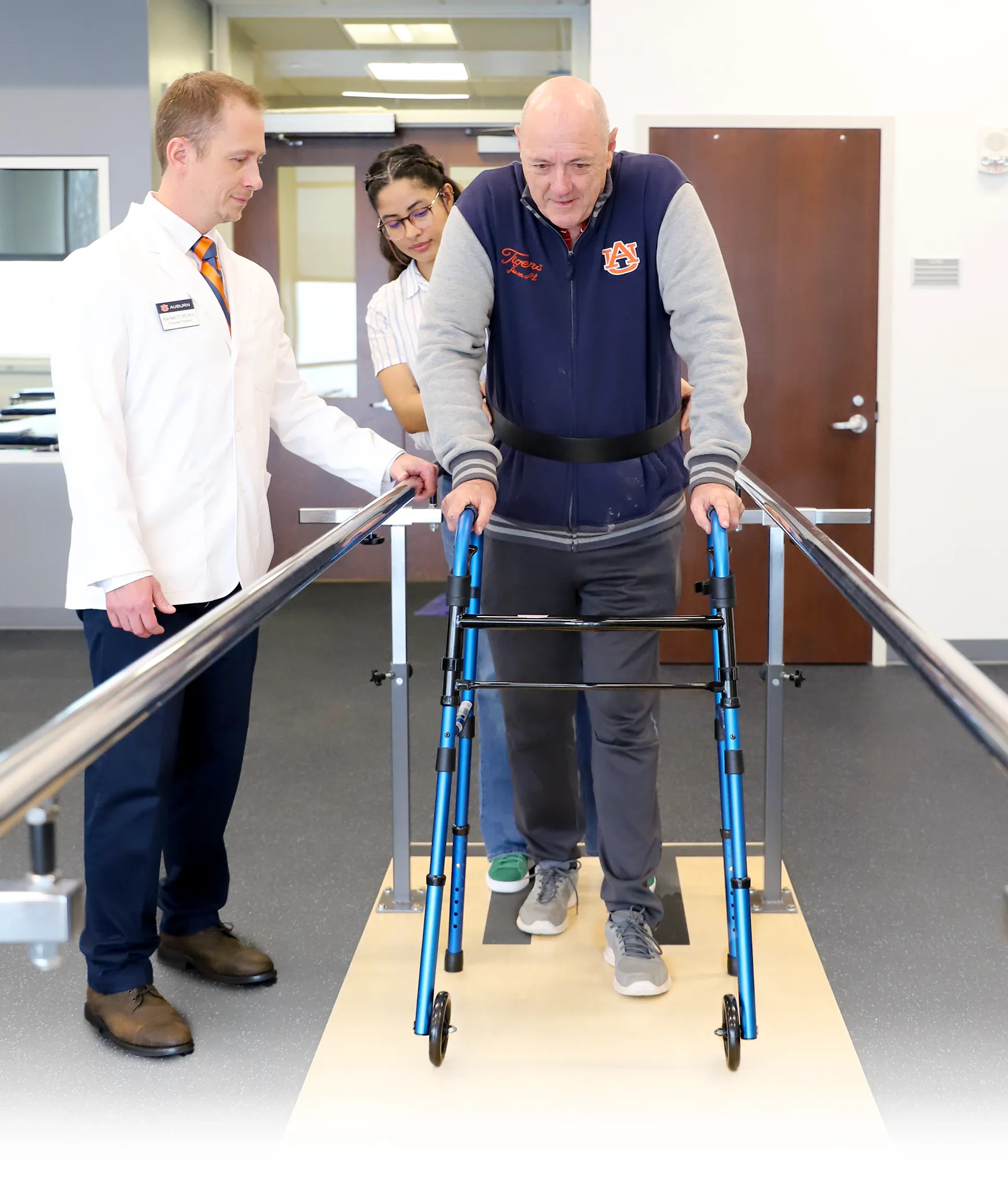
Technology
To accommodate the new physical therapy program, the School of Kinesiology renovated several spaces in the Kinesiology Building and the neighboring Student Activities Center. One space in the Kinesiology Building – the anatomy lab – houses cutting-edge technology in the form of four Anatomage tables. Anatomage tables are the most advanced 3D anatomy visualization and virtual dissection tools. Unlike cadavers or synthetic cadavers, the 3D tables allow students to visualize the systems of the body on a digital screen, simulating everything from a patient experiencing a heart attack to someone giving birth. Students will also be able to perform cadaver “dissection” using the technology. The bodies used by Anatomage are accurate digital reconstructions of real human bodies that were donated for medical education purposes.
“We are proud to have the first human anatomy lab on Auburn’s campus,” Baweja said. “The simulation anatomy tables will be used to teach clinical physical therapy, anatomy, biomechanics, medical imaging, and physiology. We are giving our students access to cutting-edge technology using Anatomage tables, the first-ever virtual dissection table.”
Other spaces include the physical therapy teaching clinical lab, which is an active learning environment that models a physical therapy clinic – complete with three private exam rooms, treatment tables, rehab stairs, parallel bars, and more. Two active-learning classrooms in the Student Activities Center are outfitted with additional treatment tables that will aid in physical therapy student training.
